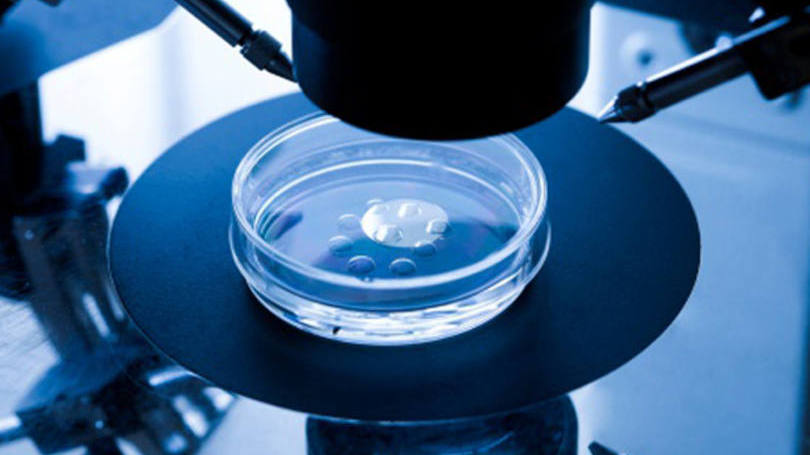Driving in the light mid-morning Lagos traffic of Saturday 2nd June 2018, I suddenly became engaged with the tune playing on the car radio. As a music enthusiast, I reflected on the song titled: Try Again, by the famous 22-year-old black American singer, actress, and model—Aaliyah—who was killed tragically in a plane crash few months after the song’s release in 2001. The lyrics of chorus of the popular R&B melody was strongly enticing….” If at first you don’t succeed, then dust yourself off and try again; you can dust it off and try again; try again.
Dust yourself off and try again, try again (and again….)” I was on my way to the Failed IVF Cycles Open Forum that was being organised somewhere on Victoria Island by Nordica Fertility Centre, Lagos, and in several ways, Aaliyah’s Try Again was the perfect song for my weekend rendezvous. That song set the right atmosphere for the topic for discussion at the forum—the essence of multiple cycle IVF treatment—and the need for couples that have experienced one or more previous IVF cycle failures not to give up but to try again and again, and to keep trying until they succeed. Most couples present at the forum had cause to answer certain questions to test their knowledge about multiple cycles IVF and IVF in general. “How many IVF cycles have you done,” Dr Abayomi Ajayi, the Managing Director, Nordica Lagos, Abuja and Asaba, asked the audience. Most couples present had done one cycle, fewer, two, and fewest, three. None had done four or more IVF cycles previously.
However, there was consensus about need for greater understanding of IVF cycles. In turn, the couples had plethora of questions of their own. Why do IVF cycles often fail? We have undergone IVF twice and failed both times. What are the chances of success if we try the third time? How many IVF cycles must we do to guarantee success so that we can take our baby home? One couple asked: “We didn’t have an optimal cycle after the second IVF attempt. What was the problem? What causes poor embryo quality, is it egg, sperm or something else? What can be done to improve it? Another couple wanted to know why it has been pregnant before but there seems to be an embryo quality issue but can’t tell exactly why. Was there any way of boosting sperm quality to obtain more viable embryos? What can be done about egg quality? Like an estimated 25 percent of couples in Nigeria, Seye and Kofo Jaiyesimi had suffered the inability to have children after one year of trying.
At least 1 in 5 married Nigerian women aged between 15 and 44 have sought infertility services. The couple started trying to have children eight years ago. But after about a year of local fertility treatments without results, saved up money to afford IVF and soon after discovered it was pregnant, but about 14 weeks later, Kofo had a spontaneous abortion. They decided to try again, sadly, the same experience was repeated. Kofo finally became pregnant again at the third attempt. “Despite the setbacks, we’re a success story, but in those eight years didn’t see that.” The Jolayemis advise other couples suffering from infertility to advocate for themselves and keep persevering. “The more couples understand how IVF works, the easier it would be for them to understand what to do when a cycle fails,” remarked Ajayi. “In IVF, the only goal is fertilisation, that is, to fuse the sperm and the egg to form the embryo. In IVF that is the only goal to fuse sperm and egg. Implantation is like the black box of fertilisation, we have a rough idea what happens but it is still mysterious.” He said in implantation, the embryo is placed like planting a seed. When you plant a seed you have to wait that’s when you know it is successful, so we have to wait for two weeks.
But IVF could fail for several reasons and it is often difficult for couples to understand why IVF could possibly not succeed. “As the egg ages, the viability decreases. Although abnormal sperm appear to be a less common factor affecting the success of an IVF cycle, they nevertheless play an important supporting role. “Embryo selection methods also contribute. Embryologists select embryos for transfer based on cell stage, embryo grade and the rate of cell division and the surgical procedures themselves, the egg retrieval and the embryo transfer, are very important to the success of an IVF cycle. Despite all the challenges, IVF remains extraordinarily successful. “One of the reasons IVF often fails is because couples are unable to make the right decisions that IVF requires,” Ajayi said with a tone of finality. “For couples to succeed with IVF, you need to listen to your doctor and try to make the right decisions. The work of a good IVF clinic is to support you make these decisions that are there are counselors, acupuncturists, all kind of specialists that can help you come to terms with these decisions.” But even when couples make the right decision, all may still not go well.
According to the World Health Organisation (WHO), a woman below 35 must be prepared to do two IVF cycles. “If you are above 35, be prepared to do three cycles of IVF because IVF does not mean that we have kept a baby somewhere to give to you; These are things that people are not usually ready to listen to. “However, some people are lucky, and some that are not so lucky. Some have done four cycles and have four babies and there are those that have done five or more cycles and no baby to show. The reason is obvious, because also there are so many things that matter. If the lab is good, it is the woman and her husband that actually determine the level of success. It is the eggs and sperms that you produce that we will use. Everybody contributes to their own success rate, through the quality of their sperms and eggs. Now, technology can actually help the sperm, unfortunately there is nothing that can be done about the egg. The quality of the egg is number one in determining the success of IVF and conception. Research has shown that women who undergo multiple cycles of IVF are more likely to have a baby.
A study published in the Medical Journal of Australia, about the chances of having a baby successfully after several rounds of IVF or other types of assisted reproduction techniques show that for women over the age of 40, the success rates for having a live baby rose from 10 percent at the first cycle of IVF to around 40 percent at the end of the seventh cycle. The study confirms that women who are undergoing IVF do have a “reasonable” chance of getting pregnant. Rates of success are higher for younger women. However, IVF can never guarantee a 100 percent chance of success. The study also showed that of the women who start having IVF before the age of 45 years, 23-35 per cent would stop after each completed cycle unable to cope with the physical, emotional and financial demands of the treatment. Women over 45 are most likely (nearly 50 percent) to stop the treatment after a single complete failed cycle.





